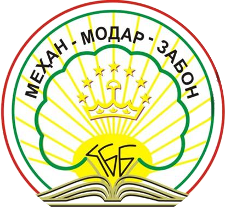Speech by the Leader of the Nation, President of the Republic of Tajikistan His Excellency Mr. Emomali Rahmon at State Language Day of the Republic of Tajikistan
Dear Compatriots!
Language is an invaluable boon in the life of the humankind. It is through language that a person expresses his feelings, thoughts and judgments. National language is like a bright mirror that reflects the history, spiritual peace and wisdom of every nation.Moreover, in the culture and civilization of all peoples, including the Tajik nation, native language is the foundation, which strengthens the basis of the national mentality and serves as the main factor of its preservation.
Our native language is a beautiful and poetic language, which for millennia embodied the knowledge and wisdom accumulated by the Tajik people. It is a convincing testament to our existence and a vivifying source in historical destiny of our nation.In other words, it is this language, thanks to whichthe glorious Tajik people created and introducedits rich history and culture to the world.
Alongside other languages ofKhorasan andMawarannahr, the Tajik language is the successor to ancient Aryan languages. World-known scientists and researchers have proved that Tajiks have made an invaluable input into the history of human civilization, and our language is listed among the most ancient languages on the planet. There are thousands of scientific studies on this issue.
The roots of our language date back to the antiquity, to the centuries before the Christ and the first centuries of the new chronology, especially to the times of existence of the Sogdian, Bactrian, Pehlavi and other languages. In the 20s of the last century, at a difficult and crucial time for the Tajik people, our language was officially termed as the "Tajik language", which became a serious prerequisite for the formation of a national state.
Therefore, while addressingour compatriots and to the Tajik language speakers andits fans, I urge you to makeevery possible effort to learn our language, explore its history, undertake measures to train specialists on the history of the language with an emphasis on its background in ancient times, only a few of whom we can find nowadays. It is also important to train dialect and text specialists.These efforts are necessary in order to eliminate the errors in the contemporary Tajik language and enrich it furtherbased oncharming and meaningful words and expressions that have long been used in our speech.
Today the world knows us as Tajiks, our country as Tajikistan, and our language as the Tajik language. Hundreds and thousands of celebrities, including geniuses, created and wrote in this language and inherited immortal works.
Wisdom and humanism, which form the basis and essence of the creations of our ancestors, are voiced in this extraordinarily rich, multifaceted, sweet-spoken language for centuries. It is due to this language that the cultural and spiritual world of our people hasgained heartof people.
The works of Rudaki, Firdavsee, Attor, Sanoee, Saadi, Hofiz, MavlonoBalkhee, Mavlono Jami and hundreds of others, written many centuries ago, even todayis clearly understood, accessible and appreciatedby our people.Today every educated person reads and delves into essence and contentof these immortal works without dictionaries and comments.For example,we still easily understand, enjoy and admire the richness of high thoughts of the “Adam of Poets" - ustodRudaki, who was born in thePanjrudVillage –a mountainous district of Panjakent, and recognized as the founder of Tajik-Persian literature.This, of course, is a matter of particular pride for us, the repositories of this great spiritual heritage.
In the process of its formation and development, the Tajik language has passed through a very difficult and sometimes tough pathway. It was many times subject to tests by the history and has overcomechallenges with honor.In today’s period of independence and theestablishment of national state, it fulfills its missionwith high dignity as one of the main pillars of statehood and a factor of unity and cohesion of society.
On 22 July 1989, the10thSession of the Supreme Council of Tajikistan has adopted Language Act.However, some of the provisions and norms of thisact officially recognized at that time,after twenty yearsdid not fully meet the growing needs of the society of our independent country.Therefore, in order to protect and develop our native language, there wasa need to develop and adopt a new language act.With this in mind, on 5 October 2009, The Law onState Language of Tajikistan was signed. This date was officially declared as the State Language Day and included into the list of state and national holidays.I sincerely congratulate the glorious people of Tajikistan, the foreign compatriots and participants of today’s event on the State LanguageDay.
Dear Friends!
The State Language Act determines the legal status and scope of the use of language, and it regulates the prospect of its development during the period of state independence in the context of radical political, economic, social and cultural changes,. This act acknowledged the Tajik language as the language of governance, legislation, business administrationand communication.Therefore, all ministries and agencies, organizations and institutions, state executive authorities of regions, cities and districts of the country are obliged to ensure the implementation of the requirements of this act in all areas, as well as to make efforts aimed at respecting norms and steady development of this poetic language.
We must continuously strive to strengthen the state language, try to enrich its vocabulary and strengthen its role in all spheres of society.
Learning and mastering this poetic and sweet-spoken language, taking care of its development and ubiquitous spread is the duty of every educated, patriotic member of our society and all its speakers.
I have to note thatdue to the lack of control by the regulatory authorities, some ministries, agencies, organizations and institutions, as well as state executive authorities of regions, cities and districts do not fully enforcethe requirements and provisions of the language act. There are still shortcomings in this direction, which we need to overcome.
The analysis shows that relevant ministries and agencies, for unknown reasons, did not implement some provisions of the State Language Development Program’ for 2012-2016.
In particular, theactivities in the field of development and publication of the Tajik Language Encyclopedia, which the Ministry of Culture and the Main Scientific Editorial Board of the National Tajik Encyclopediawere tasked with, are yet to be completed.
Also, to strengthen the frameworkof the state language, the Committee on Language and Terminology in cooperation with the Academy of Sciences and the Ministry of Education and Science should develop and present to the Government a relevant "State Language Development Program for 2020-2030”.
At the same time, we must attach a serious importance to the development, regulation and identity of terms as an important issue towards the development of the state language.
At this time of unprecedented development of science and technology, the development of terms or terminology as a language-enhancing factor in our society is gaining importance ever.
Creation of a scientific language is impossible without the development and regulation of the terminology of various fields of science and bringing the language in line with norms.Therefore, it is necessary to make use of the Tajik language to expand thematic term developmentpolitical, economic, information, legal and other areas.
In order to preserve the purity of the language during the use of terminology, it is necessary to take into account the capacity of stable elements of the state language and reasonable tested adoption in a balanced form.
We must refrain from inappropriateborrowing and adapt borrowed terms to the nature of the language, bring it in line with the grammar and orthographic structure and the phonetics of the languages.
Though,NationalTerm Convergence Council of the Committee on Language and Terminology was established to regulate this issue, and this councilconducted a number of studies and provided its recommendations, but serious difficulties still remain to this day.In particular, lack of consistencyis observed to some extent in this direction, various terms and words are used to express a concept, which misleads the reader of publications and listeners of programs.
The Committee on Language and Terminology together with the Academy of Sciences, ministries of education and science, and culture needto take additional measures to develop, apply and implement uniform terms.
Therefore, it is necessary for the Committee on Language and Terminology to take additional measures to develop, adopt and implement equable terms together with the Academy of Sciences, the ministries of education and science, and culture.
While developing terminological recommendations, special attention should be paid to the dialects of the Tajik language, which are a treasure that nourishes and enriches the language.
Dialects of our people have thousands of beautiful sonorous and informative Tajik words that, for various reasons, have gone out of use.The primary task of linguists and folklore specialists is to find such words in the course of scientific research and exploration studies and to strive for their introduction into the literary language.
Most new words included in the Tajik language dictionary emerged as a result of the development and achievements of the contemporary world.In other words, the process of globalization, the accelerated development of science and technology, including information and communication technologies, the vitalization of social networks, as well as the interaction of cultures and civilizations in the contemporary world also affect the state language and create artificial obstacles to its natural development.Therefore, it is important to make sure the nationalization of the language of new technologies in the country is at the center of attention of relevant agencies and institutions.
For example, negative influence of the disagreementsin some aspects of the Tajik language spelling, which is the determining tool of the written language, is visible in "Spelling Tajik words" software, and this issue is yet to be addressed.
To address this and other issues, it is primarily necessary to eliminate and correct the serious omissions and ambiguities that are observed in the Tajik language orthography rules. Hence, the uncertainty in the Tajik language orthography rules, the vagueness and ambiguity of most of its aspects cause unnecessary disputes and discussions and adversely affect the level of education of the people, especially the growing generation and youth.
Given this situation, the Academy of Sciences, sectorial academies, the Committee on Language and Terminology, the Ministry of Education and Science, the Union of Writers and the relevant institutions of the Executive Office of the President need to submit to the Government by January 2020, for approval, the Tajik language Orthography Rules, taking into account the existing shortcomings and difficulties.
Rudaki Institute of Language and Literature also needs to improve OrthographicDictionary by involving specialists of the field and publish itby the second half of 2020.
Our linguist scholars should remember that the Tajik language spelling rules are not only for scientists, but they are also a practical guide, the purpose of which is to improve the level of education of the people, and therefore it should be clear and understandable to all members of society.Therefore, we are obliged to resolve this important for our society issue in an appropriate manner and put an end to it by building on the norms of our rich language.
In this regard, I want to emphasize one question that I pointed out earlier.It is high time for us to create the “Academic Grammar of the Tajik Language”, which was a handbook entitled “Language Guidance” or “General Guides on Language”in the past. The grammardeveloped 40-50 years ago, now does not meet the requirements of science and current society.
One of the reasons for confusion and discrepancy in Tajik orthography is the lack of a new language manual and reliance on the old grammar.Therefore, given the factthat the previously written grammar in not in line with the requirements of present time and realities,the Academy of Sciences needs to present a specific and accurate program.
Another important issue related to the latest technologies is developing an electronic catalogue of all Tajik words based on ancient and contemporary sources and inserting them into a software.
In order to ensure quick access to the primary sources, it is necessary to introduce an electronic version of well-known dictionaries such as “Lugati Force”, “Burhoniqote”, “Ghiyos-ul-lughot”, “FarhangiJahongiree”, “FarhangiRashidee”, “BahoriAjam”, “FarhangiOnandroj”, “FarhangiZaboniTojiki”, “Lughatnova” ofAliakbarDehkhudo and other thematic dictionaries into a softwarebased on current Tajik graphic.The Committee on Language and Terminology, the Academy of Sciences, other line academies, ministries of education and science, culture and the Main Scientific Editorial Office of the Tajik National Encyclopedia need to take appropriate measures to address these issues.
Ladies and Gentlemen!
The revival of Tajik national names, their alignmentwith geographical place names is one of the pressing issues of our language policy.For the revival of ancient Tajik names and their proper use according to the norms of national word-making, by building on the meaningful traditions of our people, the Government of the country approved the "Catalogue of National Tajik Names" and determined the rules for choosing national names.
The aim of the Catalogue is to revive spiritual values and priceless historical and national cultural heritage, as well as traditional Tajik country names.The Catalogue takes into account national values and the Tajik culture of naming.
However, the officials in chargeof this issuein villages, jamoats, civil registration authorities, who still apply old name-giving methods, still show irresponsible attitude.
I have to note that some parents are dismissive of this issue and give their children defective names or names that are alien to our national traditions of naming.
People say: "Beautiful name is half of the beauty."
I have to recall that the national essence in the name of a person is a positive factor in the formation of a person and a sense of his self-knowledge and self-awareness.
Let me remind you that worshiping to alien traditionsin giving name alienates future generations from historical primordially, weakens their feelings of self-awareness and national mentality, which is unacceptable at all.
The Ministry of Justice and the Committee on Language and Terminology together with the relevant agencies need to take this issue under a serious control. They also have todevelop and submit to the Government of the country a concrete proposal for introducing necessary amendments and additions to legal and regulatory documents.Also, a number of shortcomings and errors in this Catalogue require correction; it is necessary to eliminatethem in the new version.
Along with the streamlining of names, the streamlining of the titles of neighborhoods, villages, cities and regions is also one of the very sensitive issues, because geographical toponyms are a live history of all languages, including our native one.It is necessary to preserve purely national geographical toponyms, and to restore the original names of neighborhoods and localitiesthat were changed for various reasons.
Renaming someprovinces and districts like Soughd, Khatlon, Bokhtar, Rudaki, Istaravshan, Rasht, Saykhun and Jaihun and hundreds of others with their ancient names on the political map of our country connect our glorious past with the present day, and the present with the future, and it plays a huge role in the revival of historical memory and the expansion of the framework of national self-knowledge and self-awareness of our people.However, there is still a lot of work to be done along this path.
Even now, commissions in some cities and regions of the country, while choosing titles, do not take into account historical and geographical features, as well as the occupation of residents of newly created settlements and villages.
Another issue of concern regarding the names of cities, districts and villages of the country is related to the names of great personalities and dignitaries. In this regard, it is necessary to respect the traditional rules in giving titles to localities.
The Committee on Language and Terminology needs, in cooperation with other institutions and agencies, and with the help of specialists, to take urgent and serious measures in this direction, to identify and submit for approval by the Government of the country the Tajik synonyms for the names of localities and natural boundaries to be renamed.
We can be proud and honored that thanks to great merit, selfless work, and the incomparable exploits of the glorious sons of the Tajik people starting fromIsmoiliSomoni and Rudaki to Ayni and BobojonGafurov, the Tajik language has survived to the present in its original form with a rich treasure of beautiful and caressing words and expressions.We can proudly say that the Samanids’ dynasty played a key role in the preservation, consolidation and invincibility of our nation and language.
The inexhaustible patriotism and firm desire of the Samanids to preserve the language created afoundation for the Tajik language to gain unprecedented power and unprecedented development during their reign, created favorable conditions for the emergence of literature and culture that conquered the world, the influence of which continues to this day.
Thanks to the Samanid dynasty that the unique talents of such geniuses as Abuabdullo Rudaki, Abumansur Dakiki, Abulkosim Firdavsi, Abuali ibni Sino, Abulqosim Unsuri, Aburaihon Berunee, Omar Khayyam, NosirKhusrav, SaadiShirazi (Shaikh Saadi), JaloliddinBalkhi, Mawlanā Jami and others who have strengthened and elevated our native language to the highest level with a highly artistic word in poetry and introduced accurate assertion in science.
At the same time, on the instructions of the wise and forward-lookingSamanid emirs, many religious and other books were written, which laid the foundation and created favorable conditions for the acquisition of the Tajik language as a second language in the Islamic world, and in the following centuries to become the language of international communication.
Tajik language hasbeen used for thousand years in writing scientific works. Our greatest scientists – Abualiibni Sino’s “Donishnoma-i 'ala'i" (The Book of Scientific Knowledge), and AburayhonBeruni works’ "Kitob-ut-tafhim" and "Osor-ul-boqia" became the founders of the Tajik scientific language, and this patriotic tradition was then continued by such famous scientists as NasiruddinTusi, Omar Khayyam, Ahmad Donish and others.
Bringing the Tajik language to the level of a contemporary scientific language is very important, which I spoke about many times.
Nowadays, the power and strength of each language is expressed in the presentation of scientific assertion, accurate and clear transmission of various scientific concepts and terms. The future of language largely depends on its application and use in science.We need to make a united effort to ensure that our state language keeps pace with the times and develops to the level of a scientific language.
At our initiative, the State Commission for Academic Degrees and Titles under the Office of the President of the Republic of Tajikistan started its activities, which established a ground for writing scientific monographs in all fields of science in Tajik. It is necessary for our scientists, scholars and researchers to write their research papers in the state language. I believe that this patriotic initiative will bring the desired results for the strengthening and empowerment of the Tajik language in the scientific field.
Those, who have graduated from higher education institutions in Russian and English and draftedtheir dissertations in these languages,are permitted to defend their theses in these languages. Because these languages are the languages of science and international communication, and knowledge of them is of a great importance.
In the current civilized world, six active languages of international communication are recognized as the official languages of the United Nations, and we must advise the young generation to learn them so that we can protect our national state interests in these languages in authoritative world organizations.
Dear Participants!
The language of each nation is indeed a mirror of its life, customs, traditions, knowledge and culture. In this sense, language as the primary and fundamental element of statehood plays an extremely important role -we can say - fateful role in the process of formation and building of a national state.
We must always remember that the Tajik language in the millennial history of our nation has been the most important factor in the unity of the nation. We are proud that our mother tongue, in the period of independence is still honorably fulfilling this historical mission and its life-changing role.
In the complex and contradictory conditions of the contemporary world, the sun would shine brightly for the nations who gained independence, and create their state and develop their own fateon their own.
We should be filled with feelings of gratitude for the happiness and priceless blessing after a thousand years has again come to us, Tajiks, and in the rays of this happiness, we, along with other states of the planet, independently carry out our domestic and foreign policies.
It isthe State Independence that created favorable conditions and great opportunities for the Tajik language to resonate again and revive. In turn, the Tajik language as an important pillar of national statehood ensured the unity and solidarity of our people throughout the country. Today, the native language inspires us to day-to-day efforts, the achievements of our people are personified in it and presented to the world.
I always emphasize that nowadays, every educated person, especially young people, along with excellent knowledge of their mother tongue should speak at least three to four foreign languages, including Russian and English, which is a requirement of the contemporary world. At the same time, we need to bear in mind that in our foreign policy we pursue an “open door” policy and have established diplomatic relations with 160 countries of the world. This obliges us to encourage young generation to learn foreign languages.
Our ancestors pointed out the importance of knowledge of foreign languages:
“If you know three hundred languages,
This is not the limit.
All will fit someday
It’s good when there are a lot of arrows in the quiver.”
I would like tonote with satisfaction that the number of young people, who study and and speak foreign languages, has significantly increased in recent years.It is very important that the study of foreign languages is based on laws, rules and norms of the Tajik literary language, that’s why it is important primarily to master our native language andbased on comparisonwith its rules, explore foreign languages. Our wise and forward-looking ancestors also proved to what extent this saying is important:
“Proficient you are in your own language,
Easily you can learn hundreds of other languages.”
Learning foreign languages and at the same time neglecting the native one is a sign of lack of culture and disrespect for the nation and Motherland, its history and culture. First of all, parents are responsible to preventthis from happening, they should do everything to prevent such an unseemly phenomenon. We must strive to ensure that our children first learn their native language, honor it and then begin to study foreign languages.
Masteringour state language and not spoiling it by mixing other languages, especially in verbal, is one of our most important tasks.Unfortunately, the wrong expression and spelling, the confusion of the literary language with dialects, rarely used words, especially when it comes to colloquial speech, still exists, which is a matter of concern.
Ihaveto note that in recent years the level of communication culture of adolescents and young people has worsened, and in public areas, including parks and squares, public transport, in palaces and houses of culture, rude and obscene words and expressions are heard, which is alien to our culture, traditions and habits.
We must regularly and to the extent possible, carry out awareness raising and educational activitiesfor adolescents and youth in order to prevent damage to high Tajik culture and morality, in other words, the heritage of our great ancestors.
In this regard, ministries of education and science, culture, the interior, committees for youth and sports, women and family affairs, religious affairs, regulation of traditions and customs, television and radio broadcasting, other central and local governmental authorities, as well as parentsare obliged to strengthen outreach and educational work among adolescents and youth for the sake of a greater affirmation of high morality and ethics, respect for culture and good national traditions.
Unfortunately, the level of eloquence, knowledge of poetry and reading books of adolescents and youth is also of concern today. During our meetings with teenagers and youth we had repeatedly been convinced that they do not strive enough for gaining knowledge, they are not interested in literature, not well aware of creation of classic and contemporary writers, they do not keep in memory specific historical and cultural dates and neglect studying natural and hard sciences.
Therefore, the Ministry of education and science and other authorities with educational institutions within their structures are instructed at all levels of education, regardless of their form of ownership, as well as during summer and winter holidays to arrange reading of scientific and imaginative literature for the purpose of strengthening memory of schoolchildren and students toensure mastering poetic and prose texts to establish essential norms and requirements.
The executive authorities in districts, cities and regions together with parent associations need to strengthen the control on educational institutions and take measures for motivation of teachers and students.
Beautiful Tajik words and expressions should be usedin the process of upbringing young generation-promoters of the future of our language from the early age.
I have to mention that, in the process of enriching Tajik language, increasing people’s taste to eloquence and preventing of mispronunciation and spelling, the mass media plays a significant role. I highlighted this issue at the meeting with the wide range of representatives of the state mass media this year.
I have to recall that some newspapers and magazines still do not follow the orthographic rules in their publications. Such a situationis often observed at the TV and radio broadcasts, and all stakeholders and TV and radio staff should make efforts to fix it.
At the time when newspapers, magazines, TV and radio channels can and should make decent input in strengthening and improvement of Tajik language and the scope of its use, in most cases the simple shades of the state language are not taken in to account.
I would like to recall that TV and radio broadcasts are watched and listened not only within the territory of the country, but beyond that. In the status of official and state language, nowadays Tajik language is widely used not only in domestic offices’activities and communication, but also in foreign and international relations.
However, it should be noted that the experience of the past ten years in practical implementation of the Law on state language of the Republic of Tajikistan shows that taking into account the systematic development of the country, there is a need to make amendments and additions to it.
The implementation of the law revealed that many of its articles have gaps. Many issues in various socio-political, cultural, scientific and other areas were out of sight or were not published in a proper way, which requires consideration and resolution.
Dear Compatriots!
The state language is one of the main pillars of national statehood,it plays an important role in strengthening and stability of the national state.Therefore, we have declared the state language in Tajikistan as a guarantee of the existence of the nation and the strengthening of the state. This ancient, originally pure language is an invaluable wealth and one of our national shrines.
We, native speakers, owe to future generations for its preservation and purity and must honor and protect it as an incomparable national value, benefit from all the opportunities for its further development and strengthening.
Our filial duty and human destiny is to cherish and love our sweet-voiced and poetic mother tongue as our mother, who gave birth to us and breathed love into us with lullaby song and pure and life-giving milk. Therefore, we must protect it and bow down before it as before the most valuable wealth of our being.
With pride and a sense of loyalty to the native language, I sincerely congratulate the glorious people of Tajikistan on the occasion of the Day of the State Language and wish every resident of our beloved Motherland success, new achievements and accomplishments towards service for protection and developmentof the state language.
Be always prosperous and succeed in all your endeavors, dear compatriots!
 Login
Login Sitemap
Sitemap Contacts
Contacts

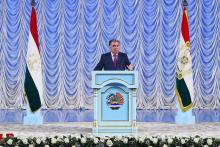


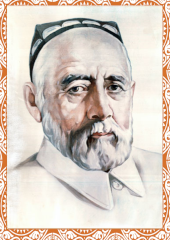 Адиб, олим ва асосгузори адабиёти муосири тоҷик. Аввалин Президенти Академияи илмҳои Ҷумҳурии Тоҷикистон. Муаллифи асарҳои «Таърихи амирони манғитияи Бухоро», «Таърихи инқилоби фикрӣ дар Бухоро», «Намунаи адабиёти тоҷик», «Дохунда», «Ғуломон», «Ёддоштҳо» ва дигар асарҳо, ки ба 29 забони хориҷӣ нашр шудаанд.
Адиб, олим ва асосгузори адабиёти муосири тоҷик. Аввалин Президенти Академияи илмҳои Ҷумҳурии Тоҷикистон. Муаллифи асарҳои «Таърихи амирони манғитияи Бухоро», «Таърихи инқилоби фикрӣ дар Бухоро», «Намунаи адабиёти тоҷик», «Дохунда», «Ғуломон», «Ёддоштҳо» ва дигар асарҳо, ки ба 29 забони хориҷӣ нашр шудаанд.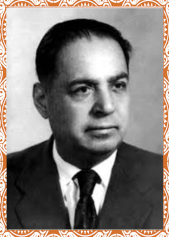 Олим, академики Академияи Илмҳои ИҶШС, арбоби ҳизбӣ ва давлатӣ, муаллифи китоби оламшумули «Тоҷикон» ва зиёда аз 300 асару мақолаҳо.
Олим, академики Академияи Илмҳои ИҶШС, арбоби ҳизбӣ ва давлатӣ, муаллифи китоби оламшумули «Тоҷикон» ва зиёда аз 300 асару мақолаҳо.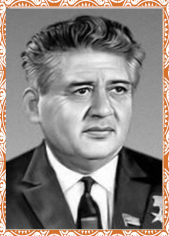 Шоири халқӣ, раиси Иттифоқи нависандагони Тоҷикистон, Қаҳрамони меҳнати сотсиалистӣ, Раиси Кумитаи якдилии халқҳои Осиё ва Африқо. Барои достонҳои «Қиссаи Ҳиндустон»(1948), «Ҳасани аробакаш», «Чароғи абадӣ», «Садои Осиё»,(1960) «Ҷони ширин» (1963) бо ҷоизаҳои давлатии ИҶШС, ҶШС Тоҷикистон ва байналмилалии ба номи Ҷ. Неҳру (1967) сарфароз шуда буд.
Шоири халқӣ, раиси Иттифоқи нависандагони Тоҷикистон, Қаҳрамони меҳнати сотсиалистӣ, Раиси Кумитаи якдилии халқҳои Осиё ва Африқо. Барои достонҳои «Қиссаи Ҳиндустон»(1948), «Ҳасани аробакаш», «Чароғи абадӣ», «Садои Осиё»,(1960) «Ҷони ширин» (1963) бо ҷоизаҳои давлатии ИҶШС, ҶШС Тоҷикистон ва байналмилалии ба номи Ҷ. Неҳру (1967) сарфароз шуда буд.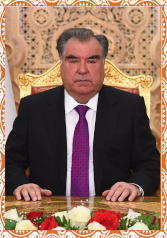 Президенти Ҷумҳурии Тоҷикистон. 19 ноябри соли 1992 дар иҷлосияи XVI Шўрои Олии Ҷумҳурии Тоҷикистон раиси Шўрои Олии Ҷумҳурии Тоҷикистон, 6 ноябри соли 1994 бори аввал, солҳои 1999, 2006 ва 2013 Президенти Ҷумҳурии Тоҷикистон интихоб гардидаст.
Президенти Ҷумҳурии Тоҷикистон. 19 ноябри соли 1992 дар иҷлосияи XVI Шўрои Олии Ҷумҳурии Тоҷикистон раиси Шўрои Олии Ҷумҳурии Тоҷикистон, 6 ноябри соли 1994 бори аввал, солҳои 1999, 2006 ва 2013 Президенти Ҷумҳурии Тоҷикистон интихоб гардидаст.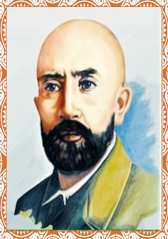 Нусратулло Махсум (Лутфуллоев) ходими давлатӣ ва ҳизбӣ. Солҳои 1924-1926 раиси Кумитаи инқилобии ҶМШС Тоҷикистон, солҳои 1926-1933 раиси Кумитаи Иҷроияи Марказии ҶШС Тоҷикистон.
Нусратулло Махсум (Лутфуллоев) ходими давлатӣ ва ҳизбӣ. Солҳои 1924-1926 раиси Кумитаи инқилобии ҶМШС Тоҷикистон, солҳои 1926-1933 раиси Кумитаи Иҷроияи Марказии ҶШС Тоҷикистон.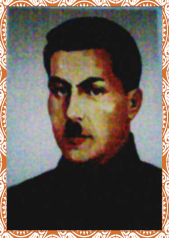 Ходими давлатӣ ва ҳизбӣ. Солҳои 1929-1931 котиби Ҳизби коммунистии ҶШС Тоҷикистон, солҳои 1933-1937 Раиси Кумитаи Иҷроияи Марказии ҶШС Тоҷикистон.
Ходими давлатӣ ва ҳизбӣ. Солҳои 1929-1931 котиби Ҳизби коммунистии ҶШС Тоҷикистон, солҳои 1933-1937 Раиси Кумитаи Иҷроияи Марказии ҶШС Тоҷикистон.


